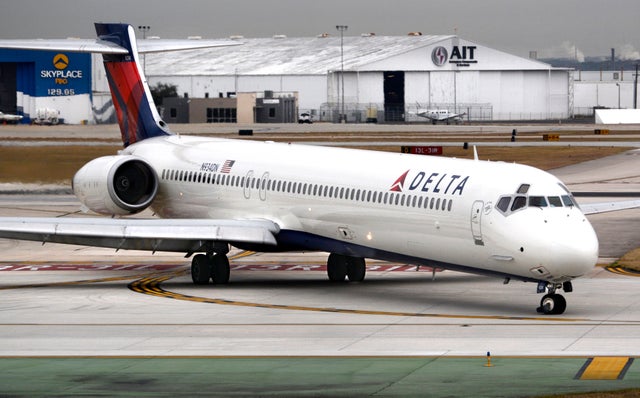
Edward Russell is a contributor for TPG. An AvGeek at heart, he covered the airline business at FlightGlobal for eight years and previously covered finance in New York and Hong Kong.
March 03, 2020 4 min read
The cards we feature here are from partners who compensate us when you are approved through our site, and this may impact how or where these products appear. We don’t cover all available credit cards, but our analysis, reviews, and opinions are entirely from our editorial team. Terms apply to the offers listed on this page. Please view our advertising policy and product review methodology for more information.
It is probably tense times in the executive suite at Delta Air Lines' campus on the north side of the Atlanta airport. The spreading coronavirus outbreak poses the most significant threat yet to the decade-long expansion at U.S. carriers, with travelers and investors alike looking to the likes of Delta for a sign of things to come.
Paul Jacobson, chief financial officer of Delta, spoke to investors at the Raymond James Institutional Investors conference on Monday on the airline's plans if the spreading outbreak takes a bite out of travel demand for an extended period. First up: retire older jets, namely the airline's fleet of McDonnell Douglas MD-88s and MD-90s, early.
"We believe it is too early to sound. alarm bells," wrote Raymond James analyst Savanthi Syth in a report Tuesday on Jacobson's comments. "Delta indicated willingness to retire early its MD-88s, MD-90s, and possibly some older [Boeing] 757s/767s."
At the end of December, Delta operated 116 757s, 77 767s, 47 MD-88s and 30 MD-90s, its latest fleet plan shows. It currently plans to retire the MD-88s this year, and the MD-90s in 2022.
Delta has no timeline to retire either the 757 or 767, which it has yet to identify a replacement for.
The potential fleet changes come as all eyes are on the airline industry to see if Americans stop traveling amid fears of the coronavirus-family disease COVID-19. Since the end of last week, Delta is seeing a "notable" decline in domestic bookings but not a "dramatic" decline, Syth wrote about Jacobson's presentation.
Many fear a more drastic drop in domestic travel demand following blanket travel waivers from Alaska Airlines and JetBlue Airways last week, and more limited ones from American Airlines and Delta since the weekend. In addition, Hawaiian Airlines and United Airlines both cancelled their investor days scheduled for early March. United said they could not have a "a productive conversation focused on its long-term strategy" in the current environment.
Daily Newsletter Reward your inbox with the TPG Daily newsletter Join over 700,000 readers for breaking news, in-depth guides and exclusive deals from TPG’s expertsMany flights across the globe have been cancelled due to the outbreak. One European airline executive told The Air Current on Saturday that they had seen minimal commercial impact from COVID-19 until last week, when demand fell off a "cliff."
Travelers concerned that their flights might be canceled in the fallout from COVID-19 will benefit from the peace of mind offered in the latest change-fee waivers from some airlines for domestic flights. But if demand remains low going into the summer, airlines could take advantage of their more drastic options -- like the possibility of Delta accelerating the retirement of its MD-88s and MD-90s -- and cut growth plans.
Travelers concerned about their travel plans -- but not COVID-19 -- will, in all likelihood, benefit from airline waivers to change or cancel their flights if U.S. travel demand does fall off. That said, if demand remains low going into the summer, airlines will likely take advantage of their more drastic options -- like Delta accelerating the retirement of its MD-88s and MD-90s -- and cut growth plans.
Syth reiterated what other Wall Street analysts -- not to mention public health experts -- keep saying about the impact of the COVID-19 outbreak: "It will get worse before it gets better."